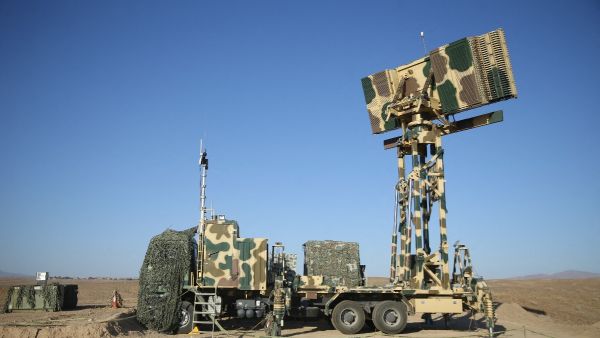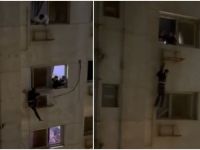ALBAWABA - Tehran is speeding up its efforts to repair and modernize its air-defense network after the intense Israeli and U.S. airstrikes that hit Iran's nuclear and military infrastructure in June. This is because people are worried about Israel's overwhelming dominance in the skies.
According to reports from the French news outlet 20 Minutes, Israel has a clear technological edge over Iran's current systems thanks to its advanced aircraft, especially the F-35 and the soon-to-deploy U.S. B-21 stealth bombers.
Iran has turned to Moscow and Beijing to make up for its weak air defense systems. Satellite images and intelligence from the region show that Tehran has started putting Chinese-made air-defense systems in important places. As part of a long-term plan to modernize, Russian S-400 batteries and Chinese J-10 fighter jets are also being looked at.
However, military expert Mohannad Al-Azzawi says that getting these kinds of high-end systems needs approval from both Russia and China. He says that "full operational infrastructure—training, logistics, storage, and transport—each of which is closely monitored by Israeli and U.S. intelligence" is part of the process.
Analyst Elena Suponina says that Russia is also careful about giving Iran weapons that could make things worse with the U.S. and Israel. She says that Moscow gives Tehran political and technical support, but it doesn't do anything that could be seen as direct military involvement.
Missiles Are Iran's Main Defense
Iran is still spending a lot of money on its ballistic missile arsenal, which includes systems that can hit targets deep inside Israeli territory. This is because upgrading air defenses is politically and logistically difficult. A member of the European Parliament's Security and Defense Committee said that any future conflict between the two sides "will not be like the short 12-day fight of the past," but could last for months.
Israeli public broadcasters say that Iran has recently stepped up the arming of its allied militias in Iraq with more advanced weapons, getting them ready for a possible larger conflict with Israel.
Signs of a Long, Intense War
Military reports say that both Iran and Israel are getting ready for a long and complicated escalation. Israel has a clear advantage because it has a fleet of F-35 fighters and B-21 bombers, as well as access to other refueling stations in Azerbaijan and nearby countries that let it fly longer missions.
Even though it is trying, Iran is still having trouble adding new systems to an environment full of cyber threats, intelligence surveillance, and the risk of preemptive strikes.
Nick Brown, who is in charge of Jane's Defense Intelligence Group, says: "Iran's airpower can't match Israel's, even with upgrades." Tehran can't do anything to stop Israeli platforms like the F-35 and B-21 from being so powerful right now.
A Race Against Time
Iran is trying to rebuild its air defenses with new planes, missiles, and partnerships with other countries, but it has to find a way to balance military escalation with diplomatic limits. At the same time, people from other countries are closely watching signs that Iran and Israel may be getting closer to a bigger, longer war.










